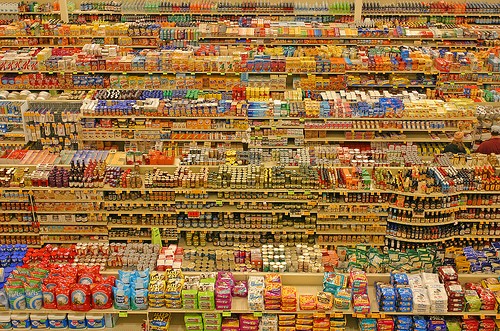It's 2021 and we have options for every facet of our lives. We have more choices than ever before in the history of mankind.
From television tending towards an “on-demand” model, to the food we eat, to the friends we make, to the partners we choose, we have more access to options than people could have imagined even twenty years ago. We can connect directly and easily with almost anyone in the world.
Here is an interesting riddle: logic tells us that the more options we have, the more chances we have to achieve this perfect and idealized life. The one where we have personalized every aspect of our existence to suit us perfectly.
But we are not perfectly logical beings. Human brains are not perfect reasoning machines that can input unlimited amounts of data and produce the perfect answer. In fact, it has been shown that too much choice harms our happiness, increases our stress and drowns us in indecision.
Why does having more choices affect us in this way? And what can we do to minimize the effects?
The paradox of choice
The paradox of jam was highlighted by Sheena Lyengar during an experiment in a supermarket.
She offered guests to taste jams. At first she offered 6 different pots, then the next day 24 pots.

In front of 6 taste options, the participants tasted 2 different pots, and left in 30% of cases with a purchase.

In front of 24 taste options, participants also tasted 2 different jars, but switched to purchase only in 3% of cases.
With a limited choice, it may be that you eliminate one or two options directly, and then choose the taste that appeals to you the most ... After all you have eliminated 2 jars, tasted 2 others, you are pretty sure that you have made the right choice.
In a 24-option choice, however, even discarding half of the options, you may still have a 1 in 12 chance of making the right choice. What if taste number 9 was better than taste number 3? It's impossible to be certain without tasting them all.
What can be concluded from this?
Even if the amount of choice attracts glances and attention, This abundance of choice becomes a frustration, and source of indecision.
A narrower choice makes it possible to make a more assured decision.
What can be done to fix it?
President Barack Obama has worn only blue or gray suits during his entire eight-year stay in the Oval office. Steve Jobs was famous for his turtleneck uniform and blue jeans.
The idea behind their limited wardrobe was simple: with so many important decisions throughout the day, why start by deciding what to wear?
Consider that you have a certain number of ”choice tokens" for a day, and that each decision, large or small, spends one of these tokens.
Minimizing choices, setting up a morning routine, allows you to completely free yourself from anecdotal choices in the morning, and save your chips for the rest of the day, for really important decisions.
You can also learn to manage the paradox of choice, and make your decisions, thanks to this guide !
Abundance of features
At Bamboo Electronics, we see an obvious parallel between this abundance of everyday choices, harmful as we have seen ... And the abundance of features of our everyday objects.
Our mission is to re-focus on the essentials and offer products that are voluntarily lightened in functionality, to help you regain a sense of comfort in use. Minimalism at the level of commonly unused features makes it possible to stop thinking about it, and to facilitate the mental path of the user.
If you don't need a feature, you can simply not use it. Even better, we suggest that you get rid of it.
We are convinced that a product reduced in “productive” features and brought back to basics, is ultimately in practice more conducive to productive work. After all, in a world where robotics and humanity tend to meet dangerously, what still differentiates us from robots are our human emotions and paradoxes, so let's take care of it.
If this speaks to you, check out our online store of minimalist, inspiring and humanly conducive to productivity products.

Why and how to adopt digital minimalism
Bamboo in China, a rich history of meaning